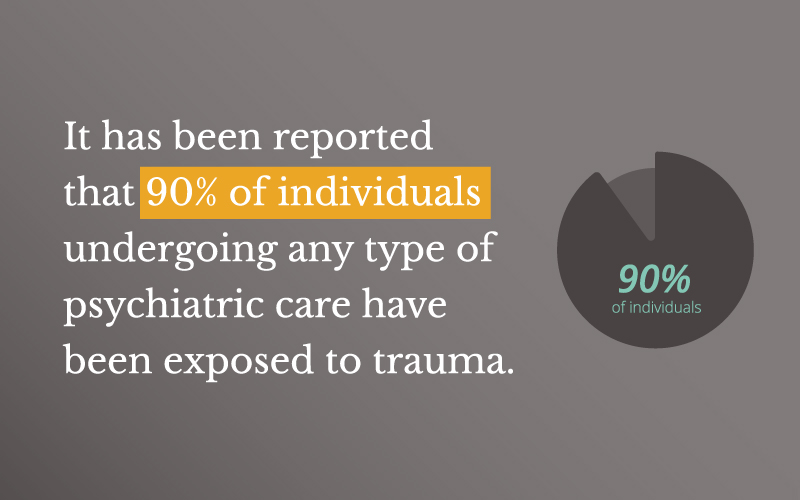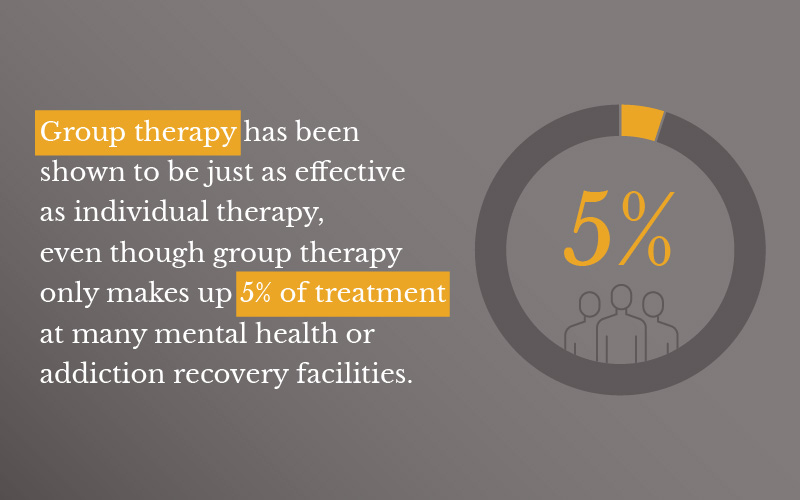What is a Partial Hospitalization Program?
Written and medically reviewed by the clinical team at Continuum Outpatient Center, including licensed therapists, addiction specialists, and medical professionals.
Introduction to Partial Hospitalization Program
A partial hospitalization program (PHP) is a structured, short-term, intensive outpatient mental health treatment program. It’s designed for people who need more support than traditional outpatient therapy but not the 24-hour care provided in an inpatient or residential setting.
A PHP is often used as an alternative to inpatient psychiatric hospitalization. It can also be used for those struggling with the symptoms of a substance use disorder (SUD).1
"In our partial hospitalization program (PHP) at Continuum Outpatient Center, we offer a variety of therapeutic interventions designed to support patients in their recovery from substance use disorders. These include intensive individual therapy sessions where patients work closely with therapists to address underlying issues contributing to addiction. Group therapy sessions provide opportunities for peer support, skill-building, and exploring shared experiences in a supportive environment. We also incorporate evidence-based therapies to help patients identify and change negative thought patterns and behaviors related to substance use. Additionally, we offer psychoeducation on addiction, coping skills training, and stress management techniques to equip patients with practical tools for maintaining sobriety. Our PHP emphasizes a holistic approach that addresses the physical, emotional, and social aspects of addiction, ensuring comprehensive support tailored to each individual's needs and goals for recovery."
Larissa Valeriano, MS, LPC Tweet

Goals of a Partial Hospitalization Program
- Stabilize people in crisis
- Address acute symptoms of mental health or substance use disorders
- Provide the skills and support needed to transition to a less intensive level of care
- Reduce relapse
"Admission to our partial hospitalization program (PHP) is determined through a thorough assessment process tailored to each patient's specific needs. We evaluate several criteria to ensure PHP is the appropriate level of care, including the severity of the substance use disorder, the presence of co-occurring mental health conditions, and the individual's readiness and motivation for intensive treatment. Patients typically qualify for PHP if they require structured support and therapy on a daily basis but do not need 24-hour supervision provided in an inpatient setting. They should also have a stable living environment and sufficient support systems outside of treatment hours. Our goal is to provide a structured therapeutic environment that meets the clinical needs of each patient while allowing them to maintain connections with their support network and gradually transition back to independent living."
Larissa Valeriano, MS, LPC Tweet
Conditions Treated in a Partial Hospitalization Program
Mood Disorders
What is an Example of a Mood Disorder? What Does it Entail?
Anxiety Disorders
The structured nature of a partial hospitalization program helps people with anxiety disorders by providing a supportive and therapeutic environment to address the underlying causes of anxiety. Group therapy and coping skills training can also be particularly beneficial.
Anxiety disorders, when not severe, often see improvement when treated at a lower-level type of care such as a PHP. These programs provide the clinical support people need while still allowing them to return home to family, work, or social responsibilities.
What is an Anxiety Disorder?: A Closer Look
Eating Disorders
A partial hospitalization program offers a comprehensive approach to address the complex issues associated with eating disorders.
- Medical monitoring
- Nutritional counseling
- Individual therapy
What is an Eating Disorder?: A Closer Look
Personality Disorders
- Develop coping strategies
- Regulate emotions
- Improve interpersonal relationships
Psychotic Disorders
- Medication management
- Therapy
- Additional support to enhance daily functioning and reduce the risk of hospitalization
Adjustment Disorders
Co-Occurring Disorders
"In our partial hospitalization program, we recognize the complex relationship between substance use disorders and co-occurring mental health disorders. We provide specialized care that integrates treatment for both conditions simultaneously. We offer dual diagnosis treatment that combines evidence-based therapies such as cognitive-behavioral therapy (CBT), dialectical behavior therapy (DBT), and trauma-informed care. These therapies help patients address underlying psychological issues, manage symptoms of anxiety, depression, PTSD, or other disorders, and develop healthy coping mechanisms. Our multidisciplinary team collaborates closely to ensure coordinated care and medication management when necessary. By addressing both substance use and mental health in an integrated manner, we strive to provide comprehensive support that promotes lasting recovery and improved overall well-being for our patients."
Larissa Valeriano, MS, LPC Tweet
Behavioral Issues

Therapeutic Techniques Used in a Partial Hospitalization Program
Individual Therapy
Group Therapy
Cognitive-Behavioral Therapy (CBT)
Dialectical Behavior Therapy (DBT)
Mindfulness-Based Practices
- Stress reduction: Practices such as meditation and deep-breathing exercises are effective in reducing stress levels. People in a PHP often face various stressors, and mindfulness helps cultivate awareness that can reduce the impact of stress on mental health.
- Increased self-awareness: Mindfulness practices enhance self-awareness by directing attention to the present moment. This heightened awareness allows people to better understand their thoughts and feelings.
- Improved concentration and focus: People in a PHP may experience difficulties with concentration. Mindfulness practices can improve concentration and enhance cognitive focus.
- Coping with symptoms: Mindfulness-based therapies teach people to approach their mental health with a sense of acceptance and non-judgment. This attitude can contribute to a more adaptive response to symptoms.
- Mind-body connection: Engaging in mindfulness practices promotes physical relaxation. This can be particularly beneficial for people experiencing physical manifestations of mental health struggles, such as tension or fatigue.
Holistic Approaches
- Yoga: Yoga combines physical postures, breath control, and meditation. It’s been shown to be effective in reducing symptoms of anxiety, depression, and other disorders.5
- Music therapy: Music therapy involves using music to address emotional, cognitive, and social needs. It includes activities such as listening to music, creating music, or using musical expression to explore emotions.
- Nutritional counseling and support: Holistic approaches may include recommendations for dietary changes to support mental health. Nutrition plays a crucial role in well-being and can impact mood and energy levels.
- Meditation: Practices involving meditation and guided imagery can help people relax, reduce stress, and explore their inner thoughts and emotions in a guided and intentional manner.
Psychodynamic Therapy
Medication-Assisted Treatment (MAT)
Trauma-Informed Therapy
It’s been reported that 90% of people undergoing any type of psychiatric care have been exposed to trauma. Integrating trauma-informed care into a partial hospitalization program is imperative for holistic healing.6
Trauma-informed therapy helps clinicians and participants identify trauma triggers and responses. It also introduces coping skills to manage overwhelming emotions and addresses dissociation, promoting a more connected sense of self.
Customized treatment plans at Continuum Outpatient Care are tailored to individual experiences to ensure the partial hospitalization program is attuned to the unique needs of each patient.
How Trauma-Informed Care Differs from Traditional Treatment
Here are just some some key differences:
- Understanding of Trauma: Traditional treatment might not explicitly address or recognize the role of trauma in a person’s life and subsequent challenges. Trauma-informed care prioritizes understanding the prevalence and impact of trauma, acknowledging that it can affect various aspects of an individual’s well-being.
- Emphasis on Safety: Traditional treatment focuses primarily on symptom reduction or behavior change. On the other hand, trauma-informed therapy prioritizes creating a safe and supportive therapeutic environment to help clients feel secure and respected, enabling room for growth and change.
- Empowerment and Collaboration: Traditional counseling often has a more authoritative approach with the therapist taking the lead. Trauma-informed therapy encourages collaboration and empowers individuals in the decision-making process, respecting their autonomy and choices.
- Avoidance of Re-traumatization: Traditional treatment may inadvertently trigger or re-traumatize individuals due to a lack of awareness about potential triggers. However, trauma-informed therapy actively works to avoid re-traumatization by incorporating strategies to minimize triggers and ensuring a gradual and consensual approach to addressing traumatic experiences.
- Holistic Perspective: Traditional therapy might focus narrowly on specific symptoms or issues. Trauma-informed therapy takes a holistic approach, considering the broader context of an individual’s life, relationships, and experiences.

How Do You Know if a PHP is Right for You?
Severity of Symptoms
Recent Hospitalization or Crisis
Need for Structured Treatment
Ability to Live at Home
Commitment to Treatment
Professional and Family Support
Determining Levels of Care

How Often Does a Partial Hospitalization Program Meet?
- Full-day programs: Patients may attend full-day programs, often lasting six hours or more each day. This comprehensive schedule allows for a range of therapeutic activities, including individual therapy, group therapy, and skill-building sessions.
- Weekday attendance: Most programs often operate on weekdays, mirroring a typical work week. This schedule allows patients to receive intensive treatment during the day and return home in the evenings.
- Variable intensity: Some programs may offer variable intensity options. This allows for adjustments in the number of days attended per week based on the person’s progress and needs.
How Often Does Our PHP at Continuum Outpatient Care Meet?
- The severity of the person’s mental health symptoms
- The goals of treatment
- The recommendations of our treatment team
"In our partial hospitalization program, a typical week is structured to provide intensive support and therapeutic interventions while allowing patients to gradually reintegrate into their daily lives. A patient's week typically includes daily sessions of individual therapy tailored to address their specific challenges and goals in recovery. Group therapy sessions are also scheduled throughout the week, offering opportunities for peer support and skill-building exercises. Each day in PHP is balanced with psychoeducation sessions that cover topics such as relapse prevention strategies, coping skills development, and understanding the neuroscience of addiction. Throughout the week, patients also participate in wellness activities designed to promote physical and emotional well-being, such as mindfulness practices, exercise sessions, and nutrition education. Regular check-ins with our clinical team ensure that treatment plans remain aligned with each patient's progress and evolving needs, fostering a supportive and structured environment conducive to lasting recovery."
Larissa Valeriano, MS, LPC Tweet

How Continuum Outpatient Care and Our Partial Hospitalization Program Can Help
"Ensuring continuity of care during transitions between levels of treatment is a priority at Continuum Outpatient Center. We approach these transitions with a coordinated and personalized plan that begins with thorough communication and collaboration among our multidisciplinary team. When transitioning from inpatient care at Ripple Ranch Recovery Center to our partial hospitalization program (PHP), we ensure that treatment plans seamlessly continue, adjusting intensity and focus as needed based on ongoing assessments and patient progress. Throughout each phase, we maintain regular follow-up appointments and assessments to monitor recovery milestones and address any emerging needs. Our outpatient care further supports patients as they integrate treatment gains into their daily lives, emphasizing relapse prevention strategies, ongoing therapy, and community support resources. Additionally, we facilitate communication between our clinical team and external support networks, including family members and community providers, to reinforce the continuity of support beyond our facilities."
Larissa Valeriano, MS, LPC Tweet
Get in Touch With Our Compassionate Team Today
If you or a loved one are ready to get the support and care you deserve, reach out to us at Continuum Outpatient Care today. We will work with you to create an individualized treatment program that addresses all of your needs and concerns.
We are committed to extraordinary client care to ensure you’re getting the top-tier treatment you need. We’ll be here with you every step of the way throughout recovery.
Resources
-
- https://pubmed.ncbi.nlm.nih.gov/10106610/
- https://mhanational.org/issues/state-mental-health-america
- https://www.mentalhealthcenter.org/early-signs-of-mental-illness/
- https://www.apa.org/monitor/2023/03/continuing-education-group-therapy
- https://www.health.harvard.edu/staying-healthy/yoga-for-better-mental-health
- https://www.ncbi.nlm.nih.gov/pmc/articles/PMC1858696/#:~:text


